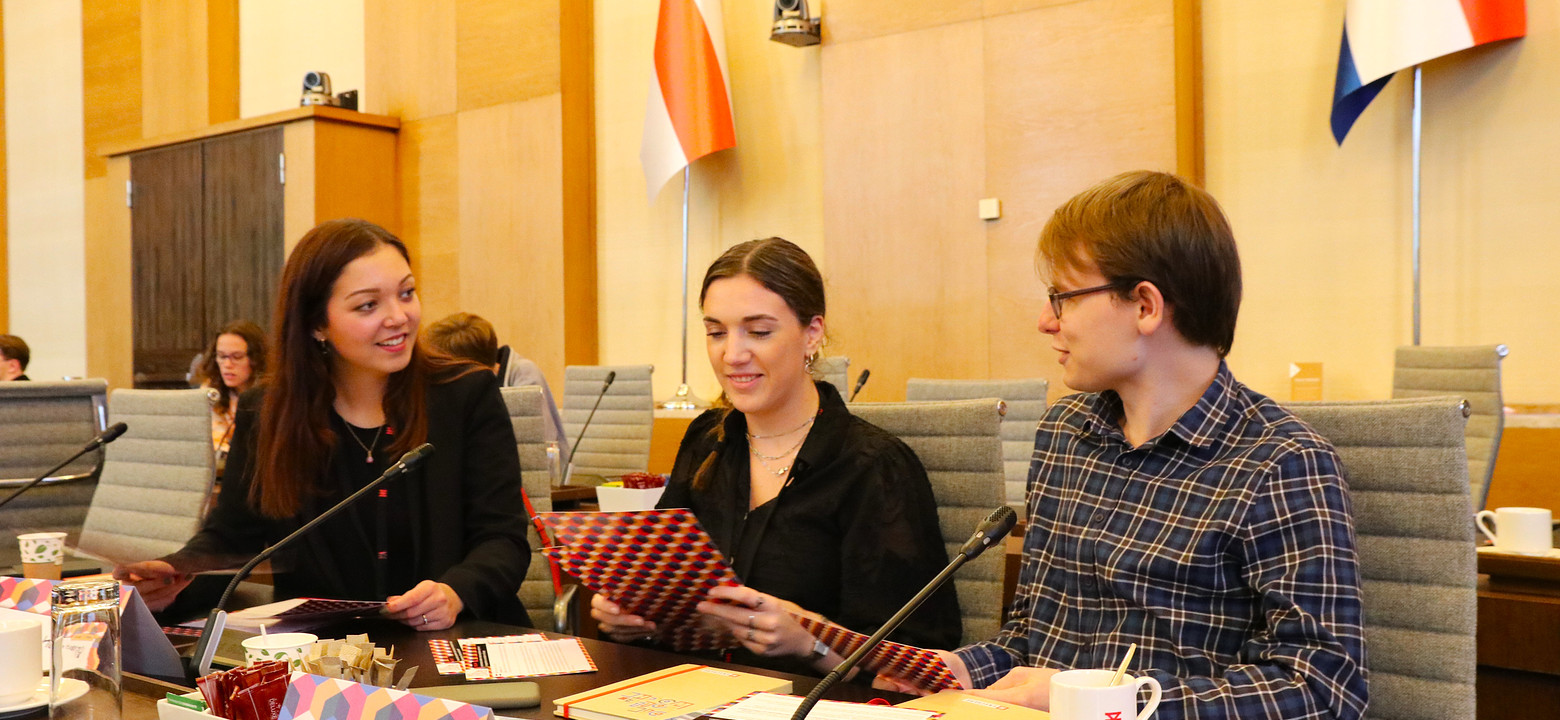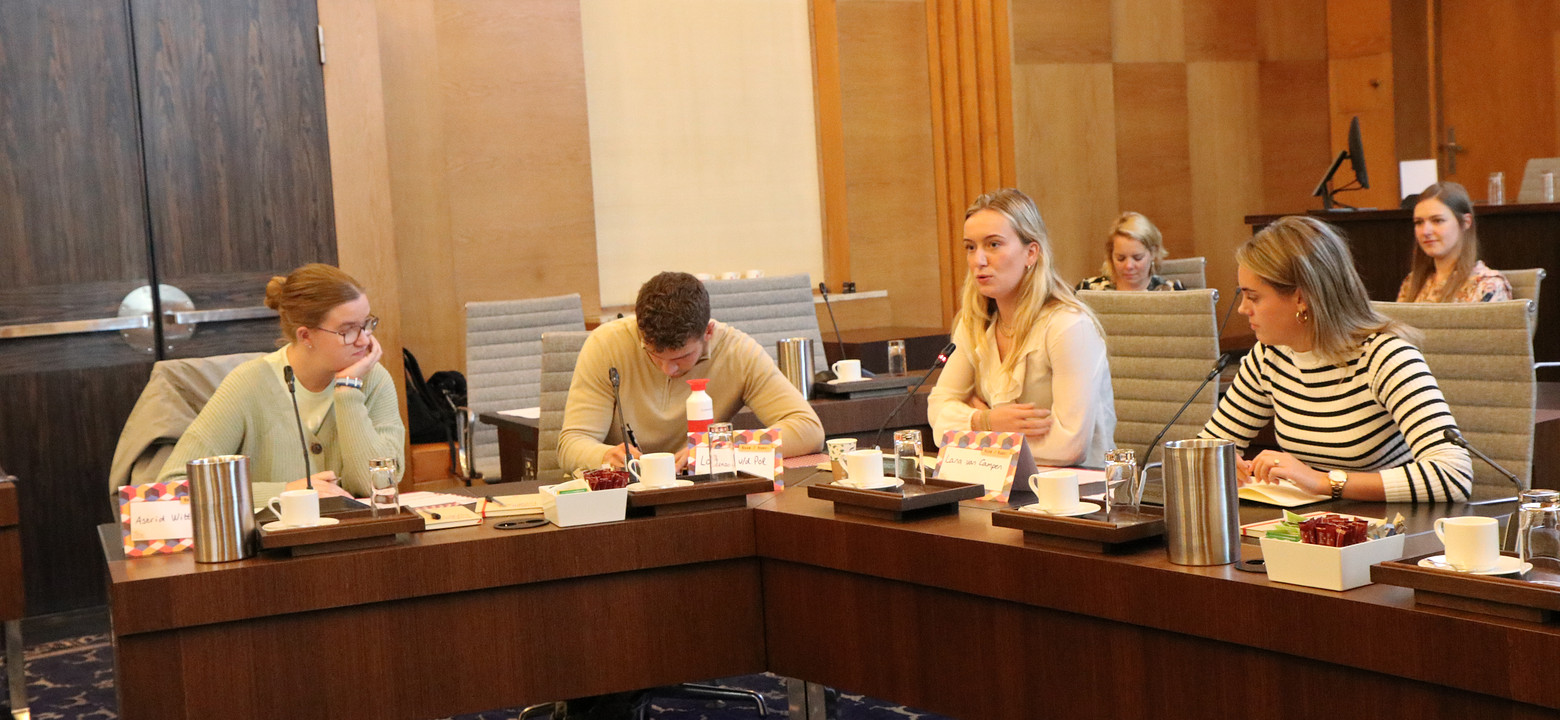Students from the Netherlands and Germany in debate during Tolle Woche
Young people from the Netherlands and Germany debated current issues relevant to the border region in the Council Chamber of the Municipality of Enschede. A group of Saxion students from the Public Administration Programme also took part. They were able to learn more about the Euregio in an interactive way. About the opportunities that lie ahead, but also the challenges to be faced and the interests at stake.
The debate was organised as part of the municipality of Enschede’s annual Germany Week known as Die Tolle Woche. This week focuses on Dutch-German cooperation and features a variety of events and activities.
Professor Jacco Pekelder of the Zentrum für Niederlande-Studien from Münster gave a lecture before the debate started. He talked about the significance of the Peace of Westphalia for the Netherlands, Germany and Europe and their mutual relations.

Two debates led by Saxion lecturer
After this presentation came the scheduled debate covering two topics: education and wind energy. This was led by Max van Tongeren, lecturer in public administration at Saxion. A simulation game with different roles was played out with mixed Dutch-German teams. For example, this included the local authority, an entrepreneur, resident, educational institution and central government. Taking on the perspective of their role, groups had to try to convince opponents of their point of view.
The two statements they discussed were:
- ‘International students: the solution to shortages in the cross-border labour market?’ and
- ‘Wind energy: the Euregio as a pilot for German-Dutch energy projects?’

The debate has shown that we all look through a different lens, but need each other to solve European, global, as well as regional problems.
Working on cross-border challenges
“Students listened to other students speaking in their own language and discussed current themes that are relevant to the border region,” tells Max van Tongeren. “The debate has shown that we all look through a different lens, but need each other to solve European, global, as well as regional problems. It is important that young people also have a say in this. Especially in a cross-border setting.”
“Major societal challenges know no national borders,” according to the Saxion lecturer. “This is why it is so valuable that Dutch students, including those from Saxion, can debate along with their German counterparts, in this splendid setting to work on finding the solutions for tomorrow’s world. For a strong region, we need a well-developed cross-border awareness. As far as I am concerned, euregional cooperation is the best and most logical form of internationalisation.”